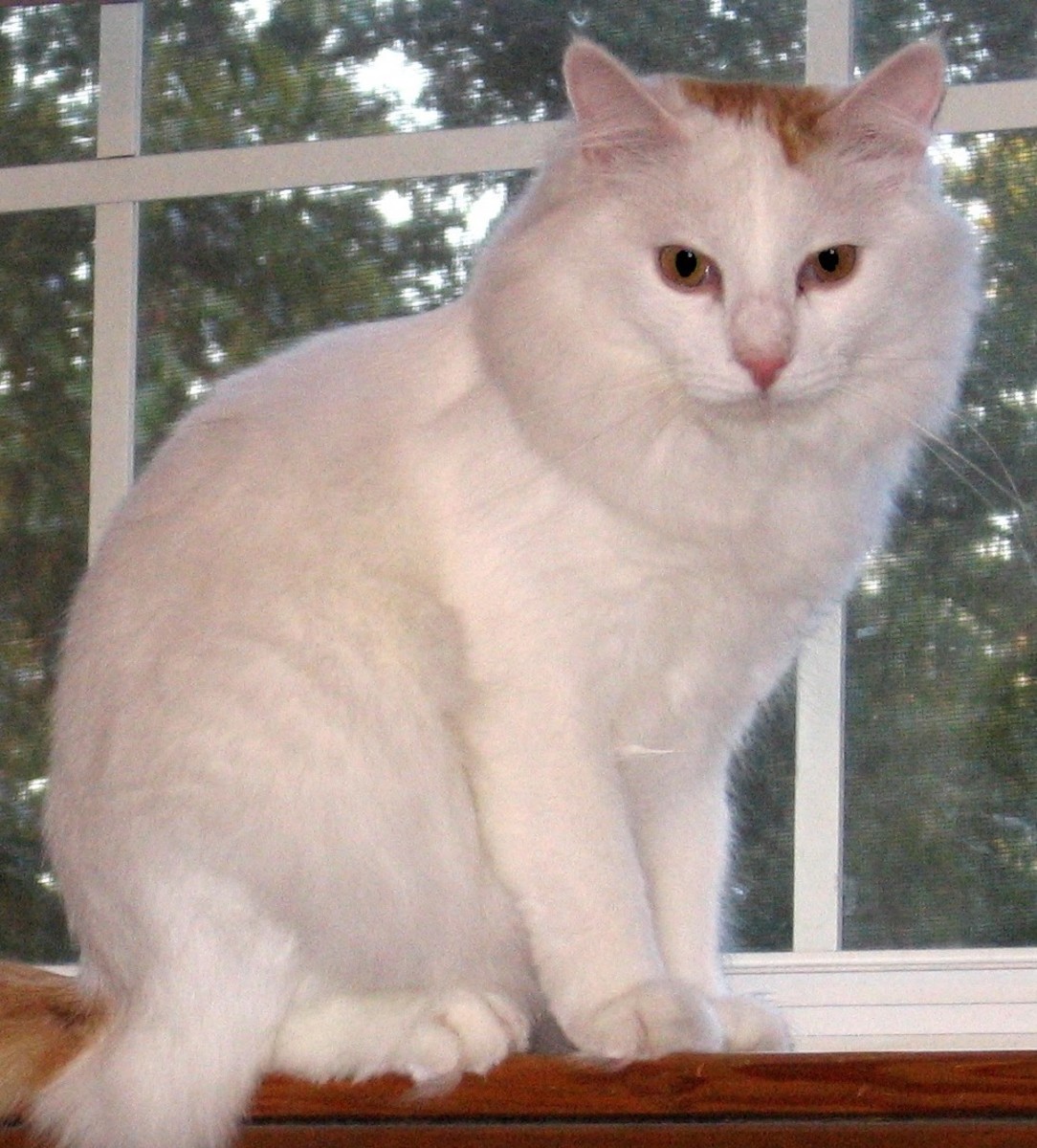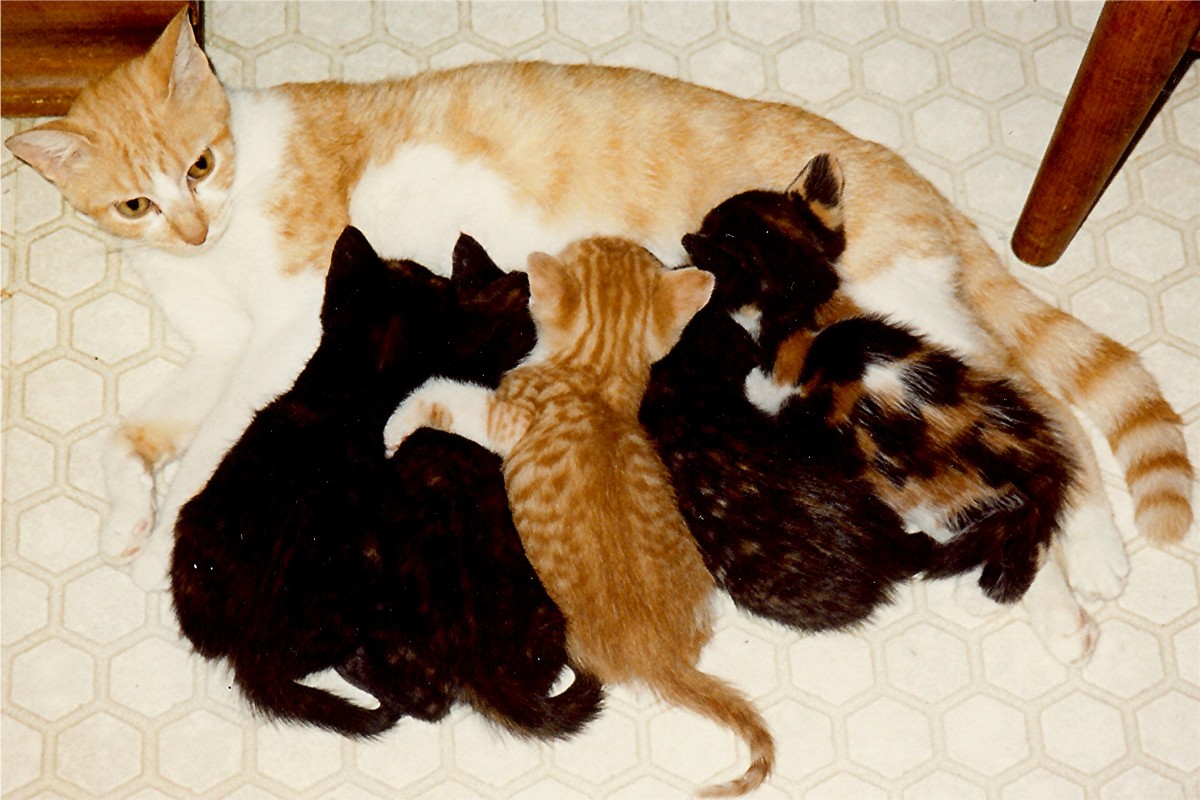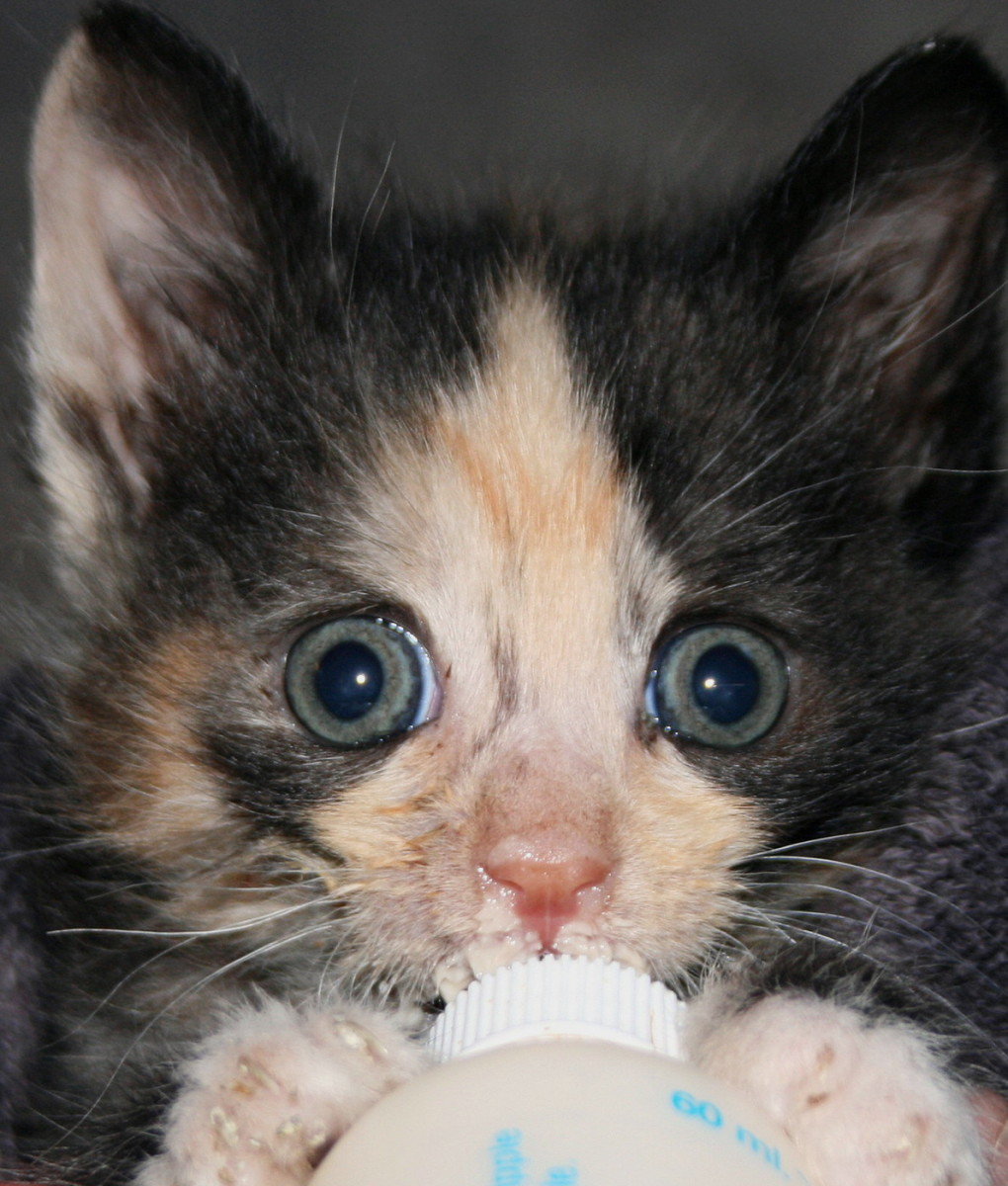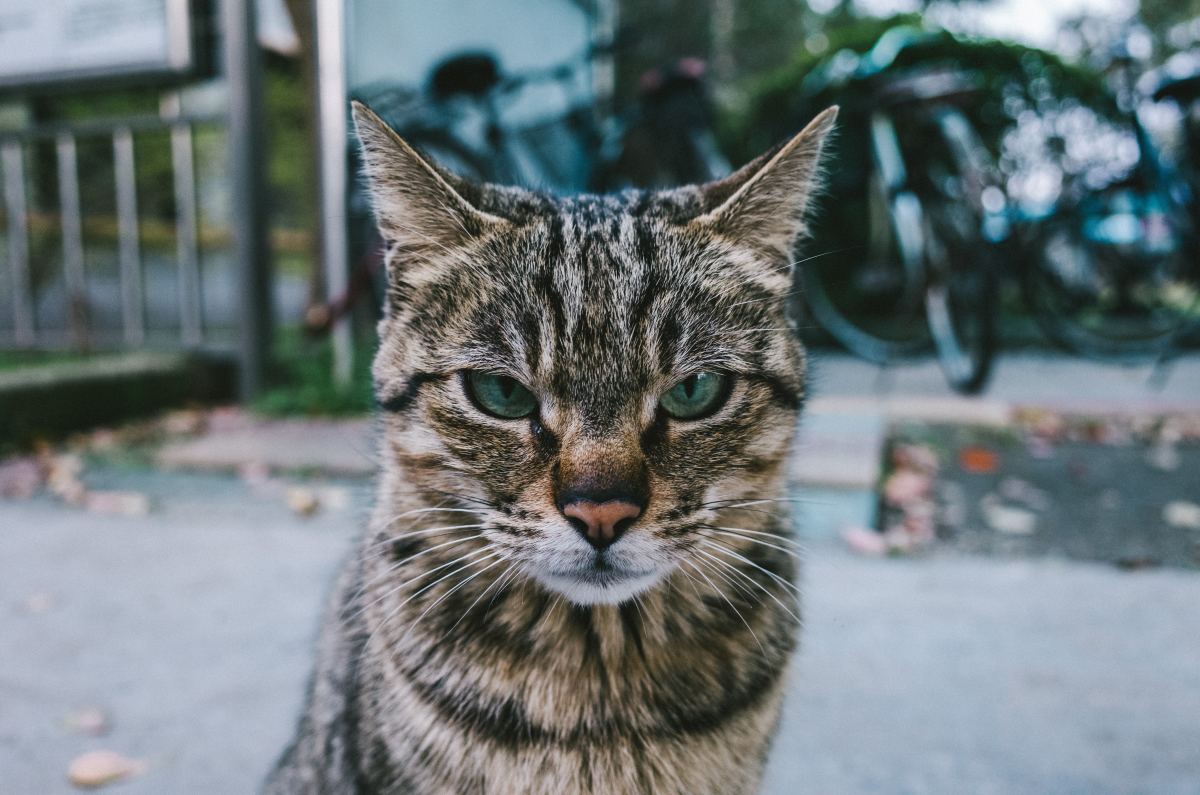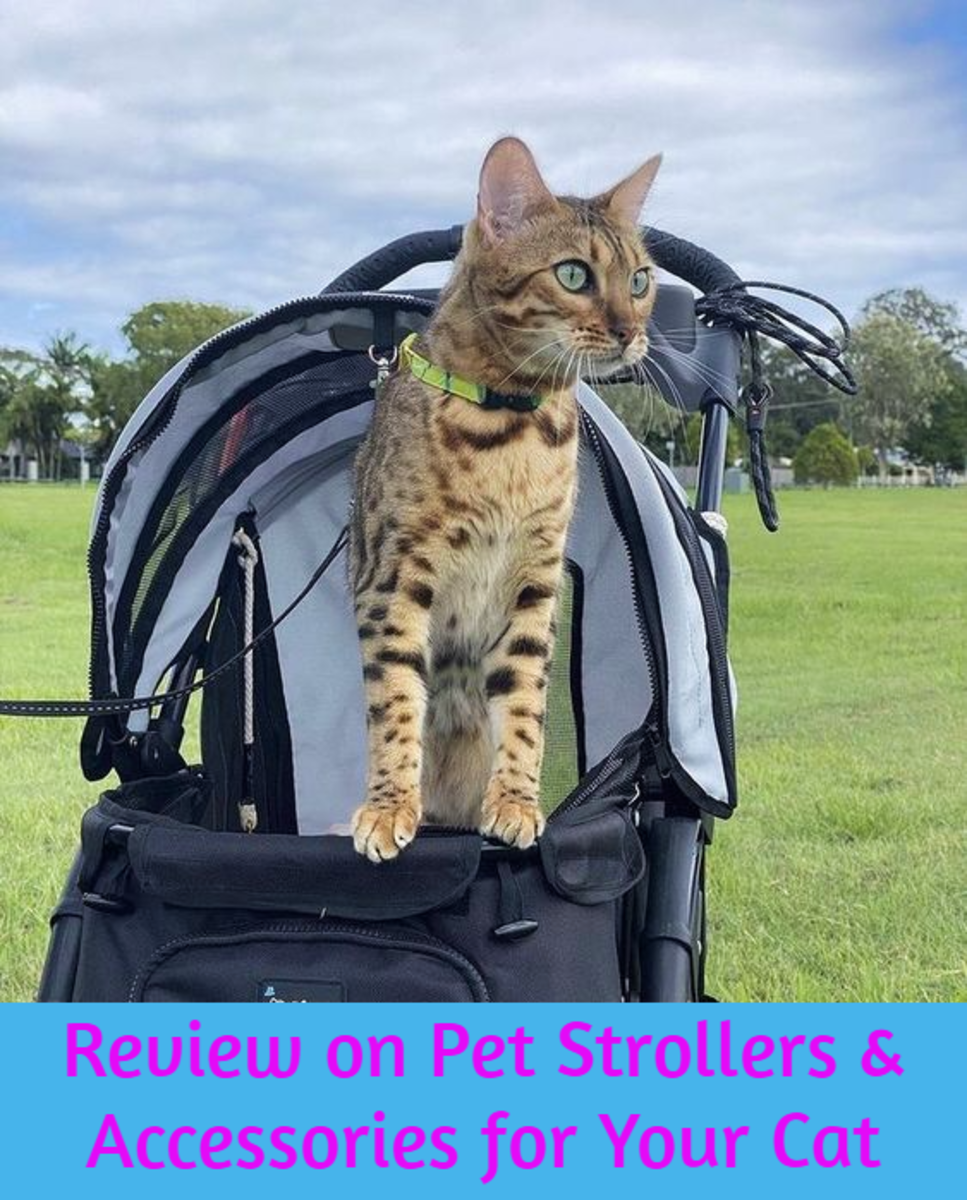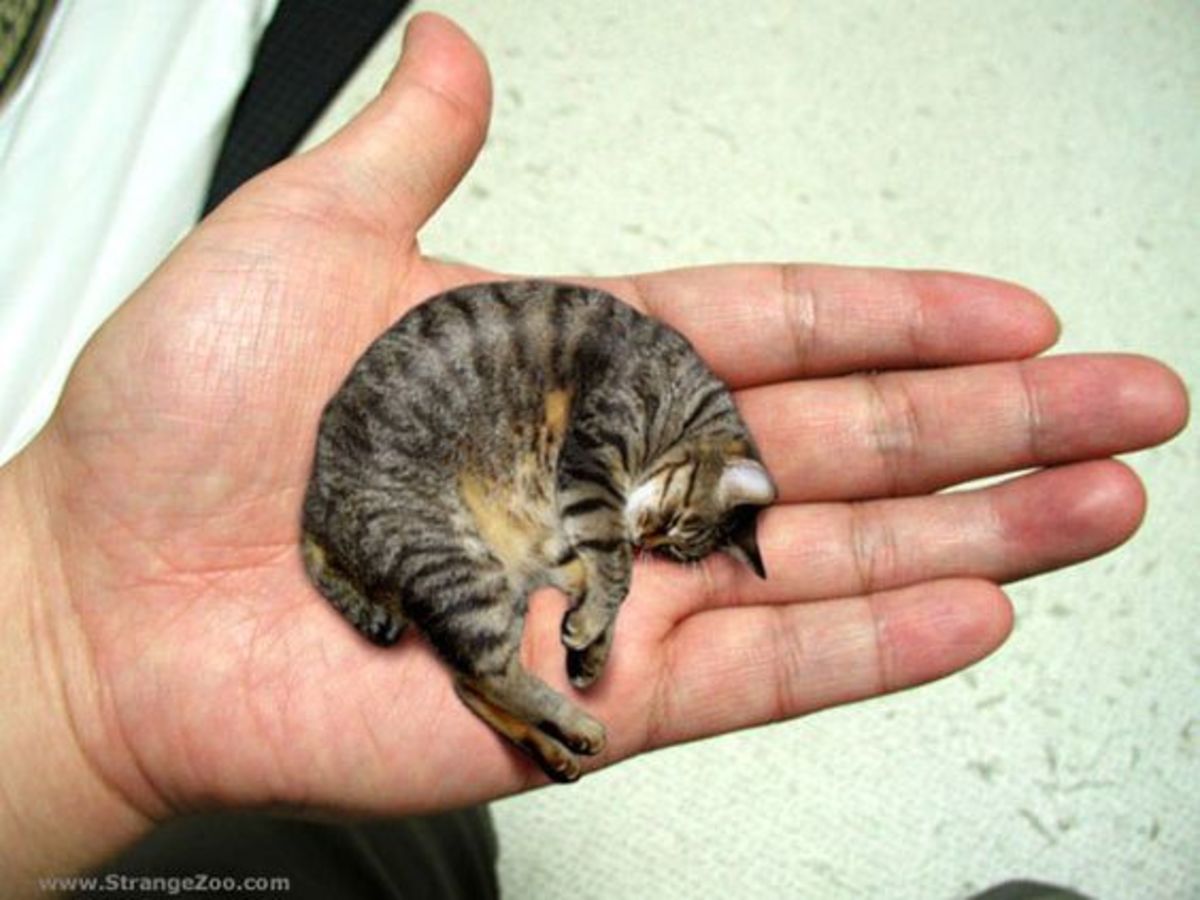Caspurr, "The Friendly Cat"
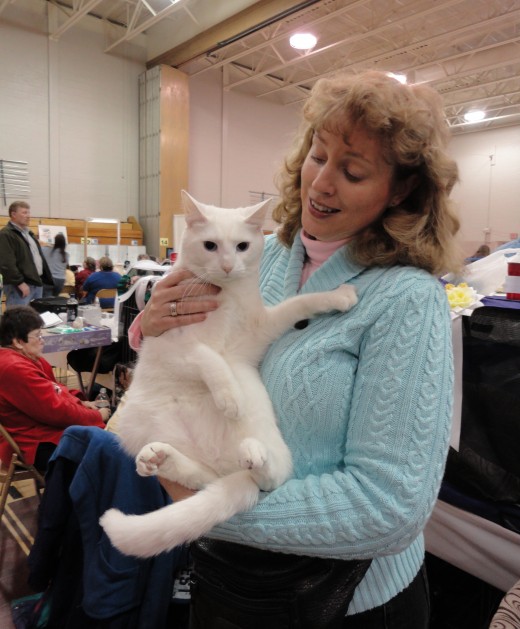
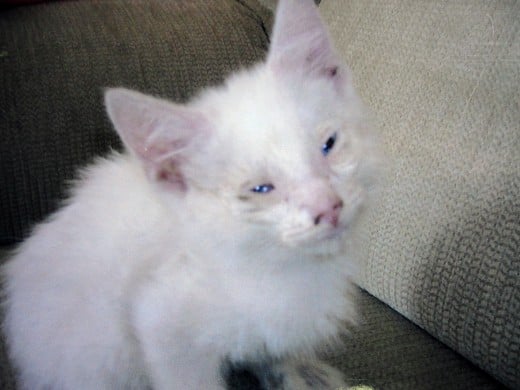
A Dog's Nose Knows
Two years ago, on July 15, 2009, brought a surprise that would forever enrich the lives of two sisters, Patricia and Karen Neary.
That morning, Patricia traipsed down the street for her usual walk with her greyhound, Misty. But Misty had other plans . . . She insisted on taking another route. Instead of following the cement walkways, Misty pulled hard on her owner, and bounded into a traffic laden street. The dog was focused on something in the broad expanse. At first, Patricia saw something that resembled a white plastic bag. But upon closer examination, she found that it wasn't a plastic bag at all. It was a tiny white kitten that couldn't have been more than five weeks old! The kitten appeared to be injured, so Patricia knelt down and gingerly lifted him up in the palms of her hands. Then, she heard a purr!
"Within a few days, it was decided that I would welcome the kitten into our home," said Karen.
His solid white coat and purr landed him the name "Caspurr."
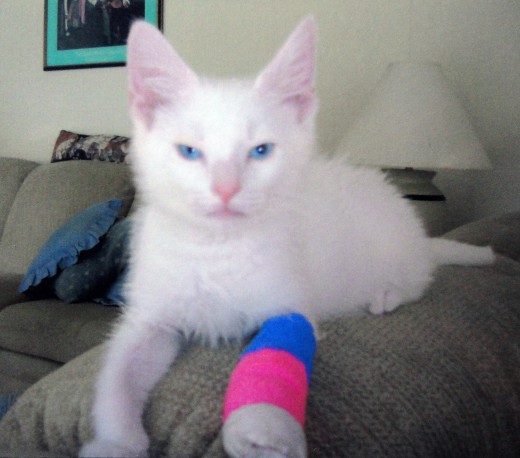
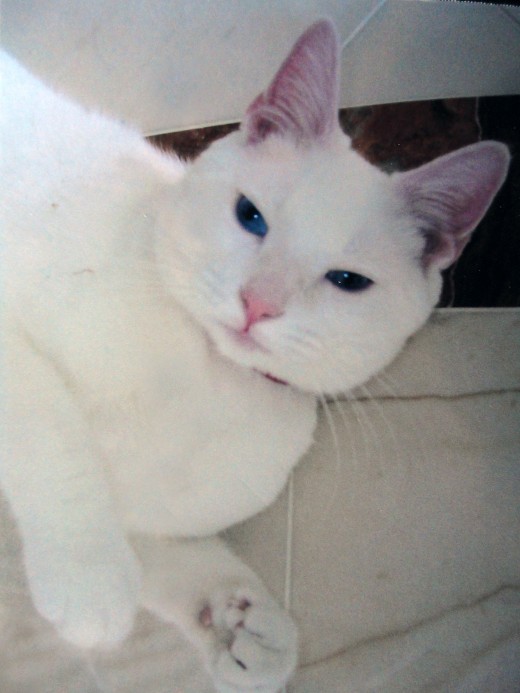
Survival of the Fittest
Weighing only 14 ounces, infection claimed most of the kitten's tiny body. Born from a feral mother, Caspurr was loaded with parasites. Roundworms are typical of most kittens that have never been wormed. They are usually passed via the mother's milk to the kittens. Feral cats also eat rodents and birds, which can carry parasites. These parasites, too, are passed to the kittens in utero or through the milk. In addition to parasites, Caspurr had an upper respiratory infection and herpes in his pale, blue eyes.
The worse by far, was the MERSA raging in his left front leg. MERSA, as it is medically referred to, is also known as Methicillin resistant Staphylococcus. It is a staph bacterium, which lives on the skin and in nasal passages. The bacterium can lead to an infection, and without proper medical treatment can also lead to death. The most common symptoms are in the form of an abcess or boil. Sometimes, it may appear like a spider bite.
In Caspurr's case, he had apparently been bitten by a wild animal (fox), and contracted the "flesh-eating bug." These bacterium are called necrotizing fasciitis; however, the bacterium do not actually consume the tissue.
MRSA is usually treated with antibiotics, but some strains have built up a resistance to Methicillin, Oxacillin, Penicillin and Amoxicillin. MRSA is also common in hospitals and nursing homes.
"He still has it in his system," Karen said of Caspurr. "It can be reactivated, but it's under control."
Roughly two months ago, Patricia was out walking her dog in the same locale as she found Caspurr. A woman living on Courtleigh told her there was a mother cat (white) with five kittens that lived underneath of a car. The mother cat had gotten mauled by a fox and had to be taken to the emergency veterinary hospital. The woman's son, who was visiting, took four of the five kittens home with him. However, there was one little kitten missing in action. That kitten is believed to be Caspurr!
So, now things were starting to make sense. It is believed that a fox had grabbed hold of Caspurr as a kitten. Before the fox could make off with him, the mother cat, being protective over her young, must have charged the fox. In the process, she sustained her injuries. And Caspurr his.
"If the mama cat hadn't intervened, there would be no Caspurr," Karen explained.
So, just why wasn't Caspurr with the other four kittens? What made him wonder off from the rest of the litter? Here's where it gets interesting.
Patricia had consulted a pet psychic about her dogs. During the session, she made mention of the kitten that she had found. The psychic said she could see "a white kitten that went chasing after a bug and got lost!" Now everything was starting to come together.
After three months of treatment, four operations, and the possibility of the kitten losing his leg, the infection finally lessened. Caspurr was now adjusting happily to a leg free of cumbersome bandages and casts--minus one toe on his left paw, which had to be removed due to the MRSA.
"With obvious joy, he bounded and jumped, at last, well enough to enjoy the blessings of restored health," Karen said.
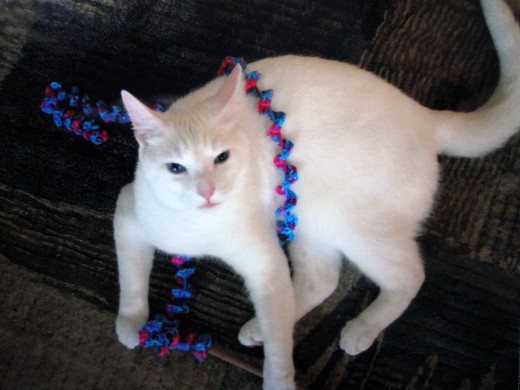
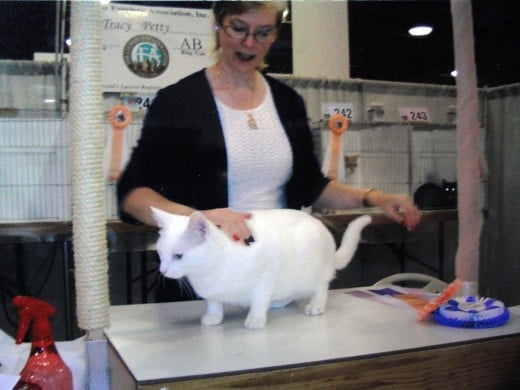
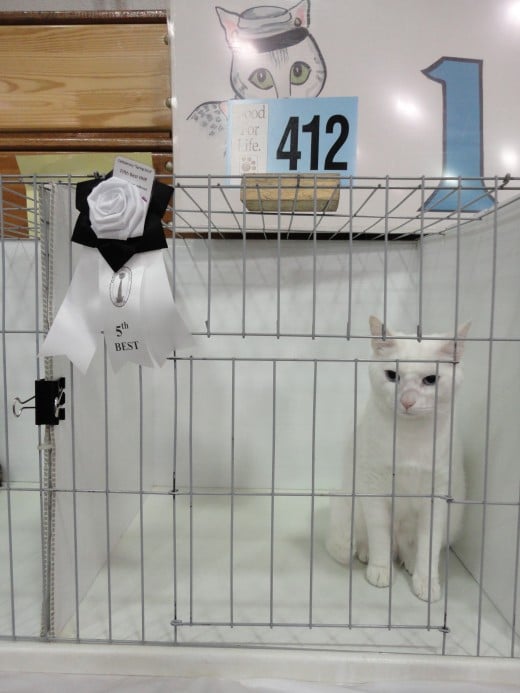
From Feral Cat to Show Cat
At nine months, Caspurr participated in his first Cat Fanciers' Association cat show. CFA is one of the world's largest registries of pedigreed cats. However, household pets, such as Caspurr, may compete in CFA shows. According to CFA's web site: "Household pets are judged in one group without regard to sex, coat length, age, or color. Although there is no written standard for household pets, they may NOT be declawed. And if they are over eight months of age, they must be neutered or spayed. Instead, household pets are judged for their uniqueness, pleasing appearance, unusual markings, and sweet dispositions. Further, each household pet reflecting good health and vitality receives a Merit Award (red/white). At the end of the judging, the best household pets are introduced in a final." Caspurr was awarded three ribbons at his first CFA show! By his fourth show, he had ranked 12th in the Southern Region for Household Pet!
Other purbred cat registries such as the American Cat Fanciers Association, not to be confused with CFA, also allow household pets to show. Caspurr's registered name with ACFA is "Prince Caspurr of Courtleigh," after the street on which he was found. Last year, Caspurr competed in his second ACFA show, and received the title Best Household Cat for the Northeast Region! The title suits him well, indeed.
Caspurr continues to climb the ladder, and has now moved up to third in the Southern Region for Household Pet with CFA! Caspurr has since accumulated 61 ribbons from various shows.
UPDATE:
Out of more than 200 cats in CFA's Southern Region, Caspurr earned ninth place standing for the year. He is now retired, and enjoying his time at home playing with his new adopted brother, Coppurr, who is currently ranked number 10 in the Southern Region.
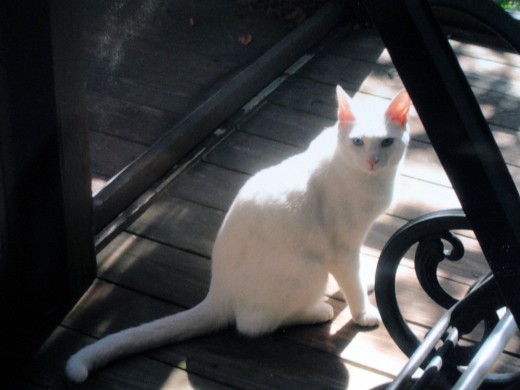
For more information on showing your household pet, visit:
Cat Fanciers' Association at: www.cfainc.org
American Cat Fanciers Association at: www.acfacat.com
or
Contact Dorie Eckert with the Catfederacy Cat Club of Gettysburg at: (717) 334-5890

